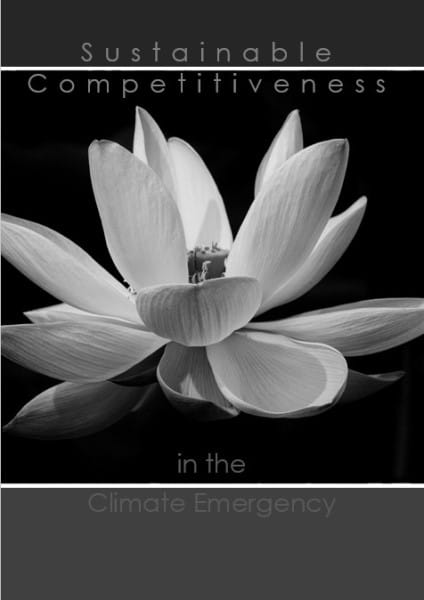Sustainability
Sustainable Competitiveness
Sustainable competitiveness is the ability to generate and sustain inclusive wealth without diminishing the future capability of sustaining or increasing current wealth levels.
We live in a competitive World. Some products and services sell better than others, and some countries are more successful than others in generating income for their citizens.
According to Wikipedia, competitiveness is “the ability and performance of a firm, sub-sector or country to sell and supply goods and services in a given market, in relation to the ability and performance of other firms, sub-sectors or countries in the same market”.
Competitiveness, in its conventional definition, is the outcome – the ability to sell goods/services. However, managers interested in the performance of their company (and policy makers interested in the well-being of a their nation) must design policies and tools that facilitate competitiveness in the first place. Not only for now – but also into the future. This is where sustainable competitiveness comes in: sustainable competitiveness is not just being able to compete successfully at this point in time and over the next one or 2 years. Sustainable competitiveness is being able to successful compete and exist in the long term.
Successfull companies and/or nations are based on frameworks (the internal management, and external influences) that allows for individuals and companies to be successful – now, and into the future. Sustainable competitiveness is the ability to build a framework (policies, regulations, management tools, and visions) that allows a firm, a sector, an individual or a country to sustain or increase the ability to provide income in relation to the current and future wider environment and society.
Sustainable profitability – profitable sustainability
Sustainability is not a new concept. It is an evolution of existing management thinking and paradigm. The difference to conventional management is that the horizon on which management decisions are taken is wider in with (issues) and depth (time). Sustainable management therefore is superior to conventional management. Sustainable management is sustainable competitiveness, is the foundation to sustain competitiveness. Sustainability is profitable – and profitability is sustainable.
Sustainable competitiveness csn be applied for both economic policy making and corporate management. Read more on sustainable competitive economies, go to the Global Sustainable Competitiveness Index, or read more on sustainable competitive corporations and our track record of implementing sustainable management.
Key policies for achieving Sustainable Competitiveness globally
- Internalise ALL external costs with fiscal neutral dividends re-distributed
- More democracy
- Better governance
- Real market economy
- Education, education, education – quality education for all
- Working financial markets
- Health care and social security for all
- Impartial and efficient justice system accessible to all
- Unitary Taxing
- Fact-based, impartial information
- Freedom for, and from, religion.
- Total equality
Sustainable, Democratic, Competitive

How to achieve more sustainable AND more prosperous societies: the 12 key policies Sustainable. Competitive.
